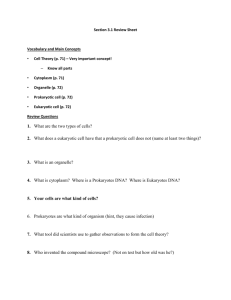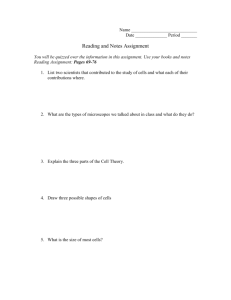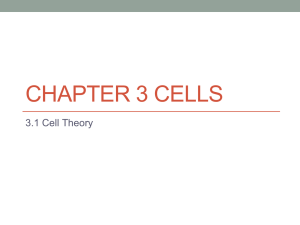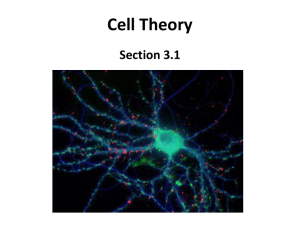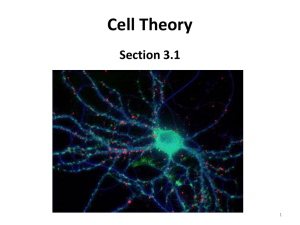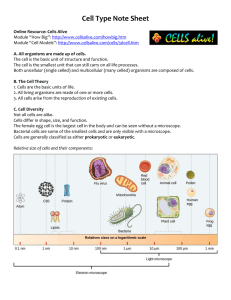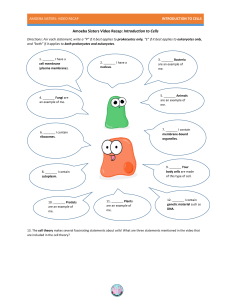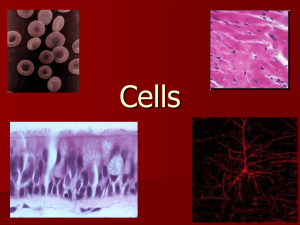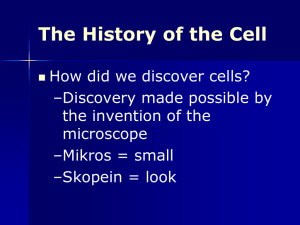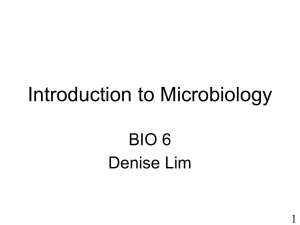Cell Theory Prokaryotes and Eukaryotes
advertisement
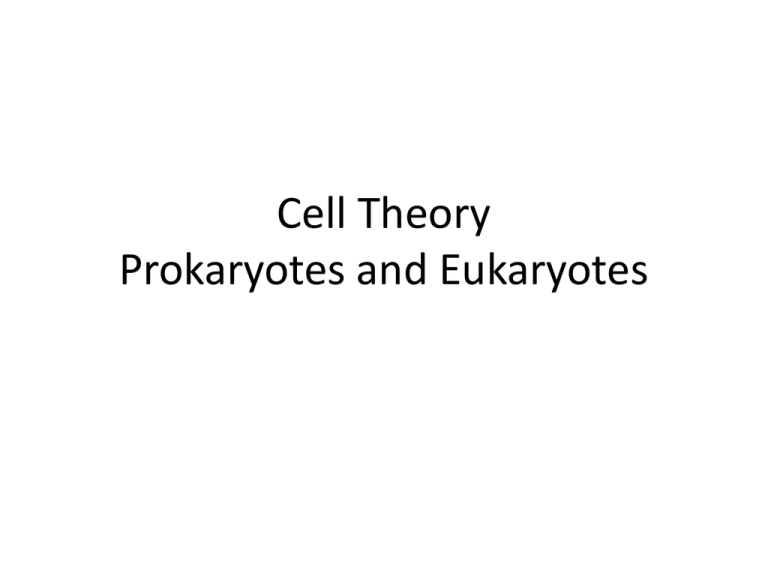
Cell Theory Prokaryotes and Eukaryotes First Observations of Cells • The invention of the microscope made it possible for people to discover and learn about cells. Robert Hooke One of the first people to observe cells was English scientist and inventor Robert Hooke who built his own compound microscope and used it to look at thin slices of cork. Anton van Leeuwenhoek Leeuwenhoek was a businessman who liked to make microscopes in his spare time. He used them to look at pond water, and scrapings from his teeth. He found many tiny moving organisms which he named animalcules. All plants are made of cells! The Cell Theory All animals are made of cells! Matthias Schleiden Theodor Schwan Inspired by the work of Hooke and Leuwenhoek other scientists began to use microscopes to study cells. Over time, they developed the cell theory. New cells are formed only from cells that already exist Rudolf Virchow The Cell Theory • The cell theory states the following: 1. All living things are composed of cells. 2. Cells are the basic unit of structure and function in living things. 3. All cells are produced from other cells. CELLS The basic unit of life Every living thing is made up of one or more cells! TWO KINDS OF CELLS 1. PROKARYOTES 2. EUKARYOTES Common Features of ALL cells: • Cell Membrane Common Features of ALL cells: • Cell Membrane • Cytoplasm Common Features of ALL cells: • Cell Membrane • Cytoplasm • DNA Common Features of ALL cells: • Cell Membrane • Cytoplasm • DNA • Ribosomes PROKARYOTES 1. 2. 3. 4. All single celled organisms Do not have a nucleus All have a cell wall. DNA is in a single circular ring, or loop in the center of the cell. EUKARYOTES 1. Can be single or multicellular 2. Has a nucleus which houses the cells DNA. 3. Contains many smaller parts called organelles which each have a certain job in the cell. 4. DNA is packaged into structures called chromosomes. TWO KINDS OF CELLS 1. PROKARYOTES 2. EUKARYOTES
